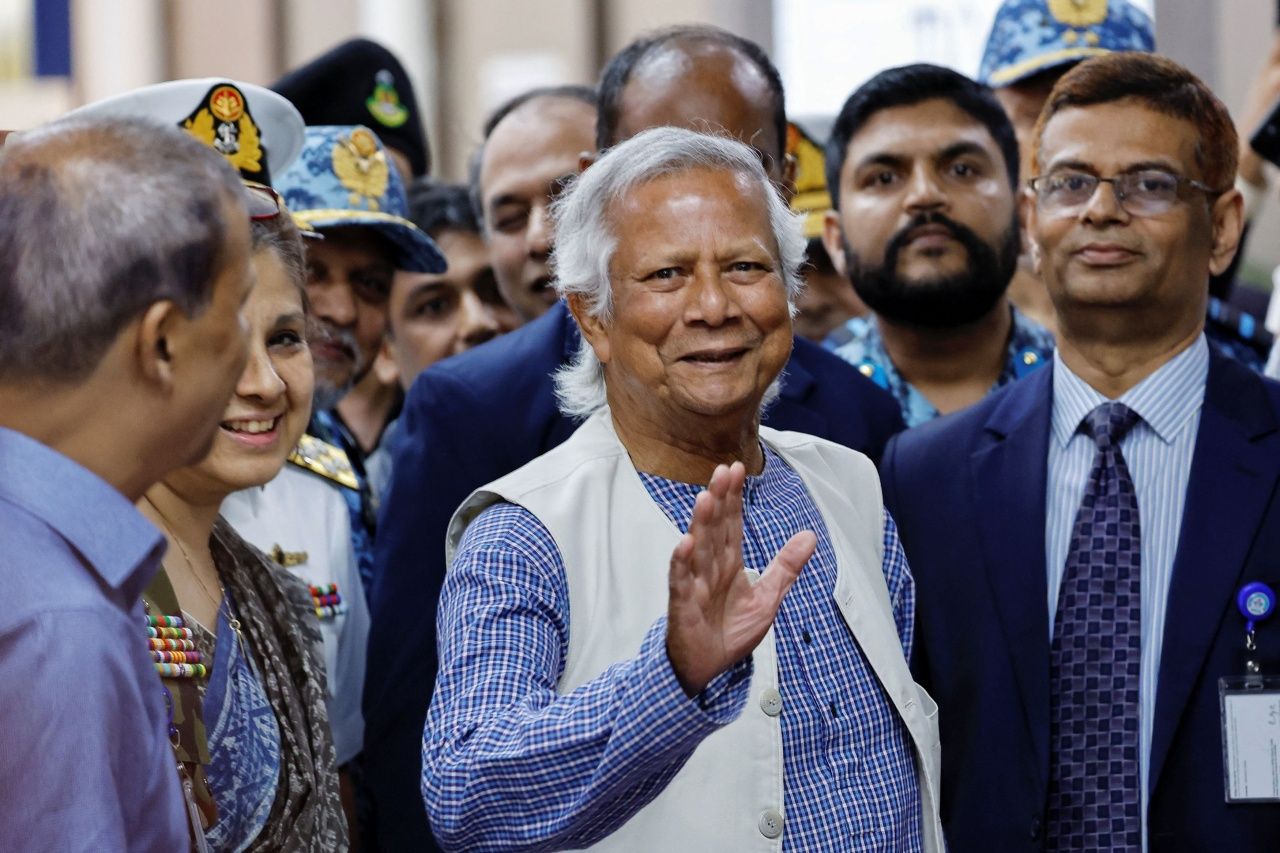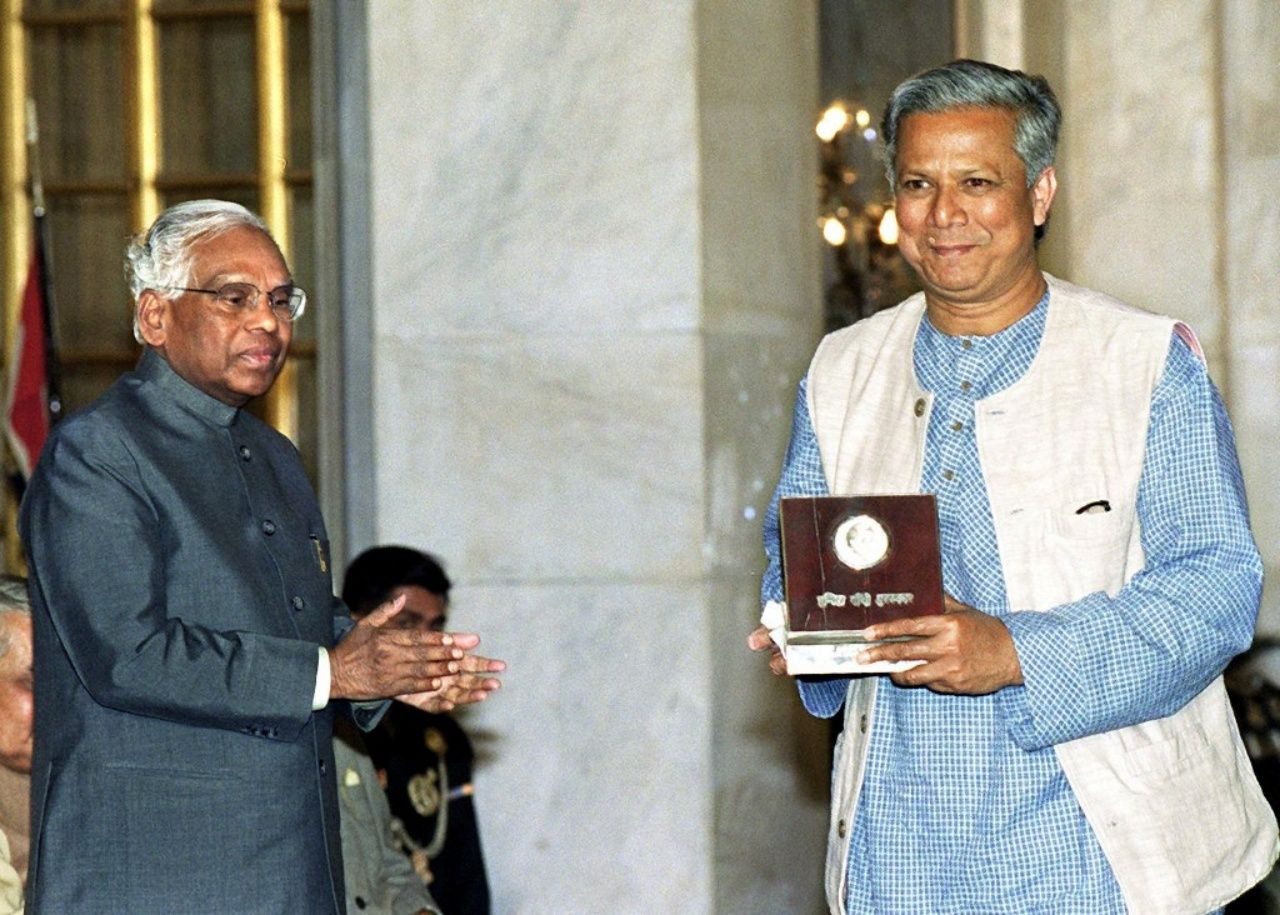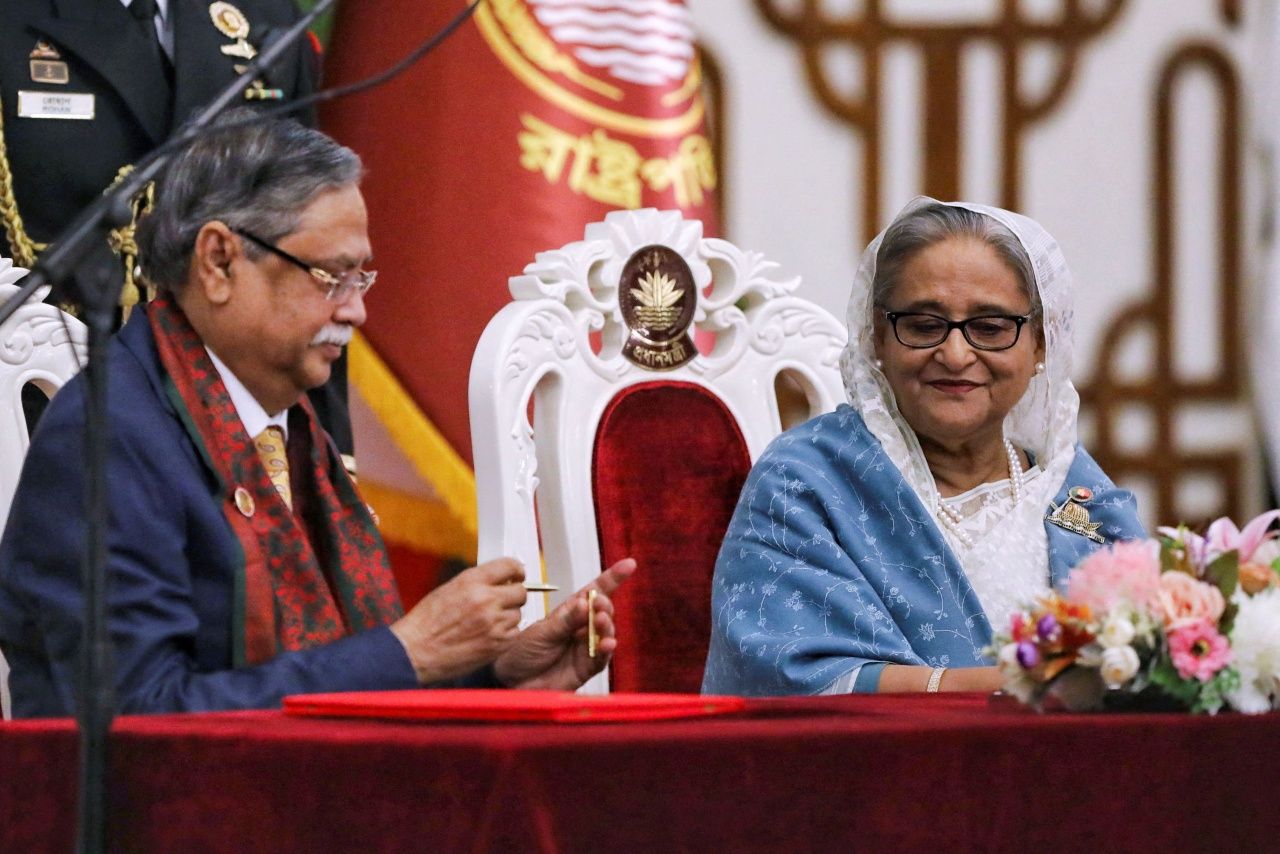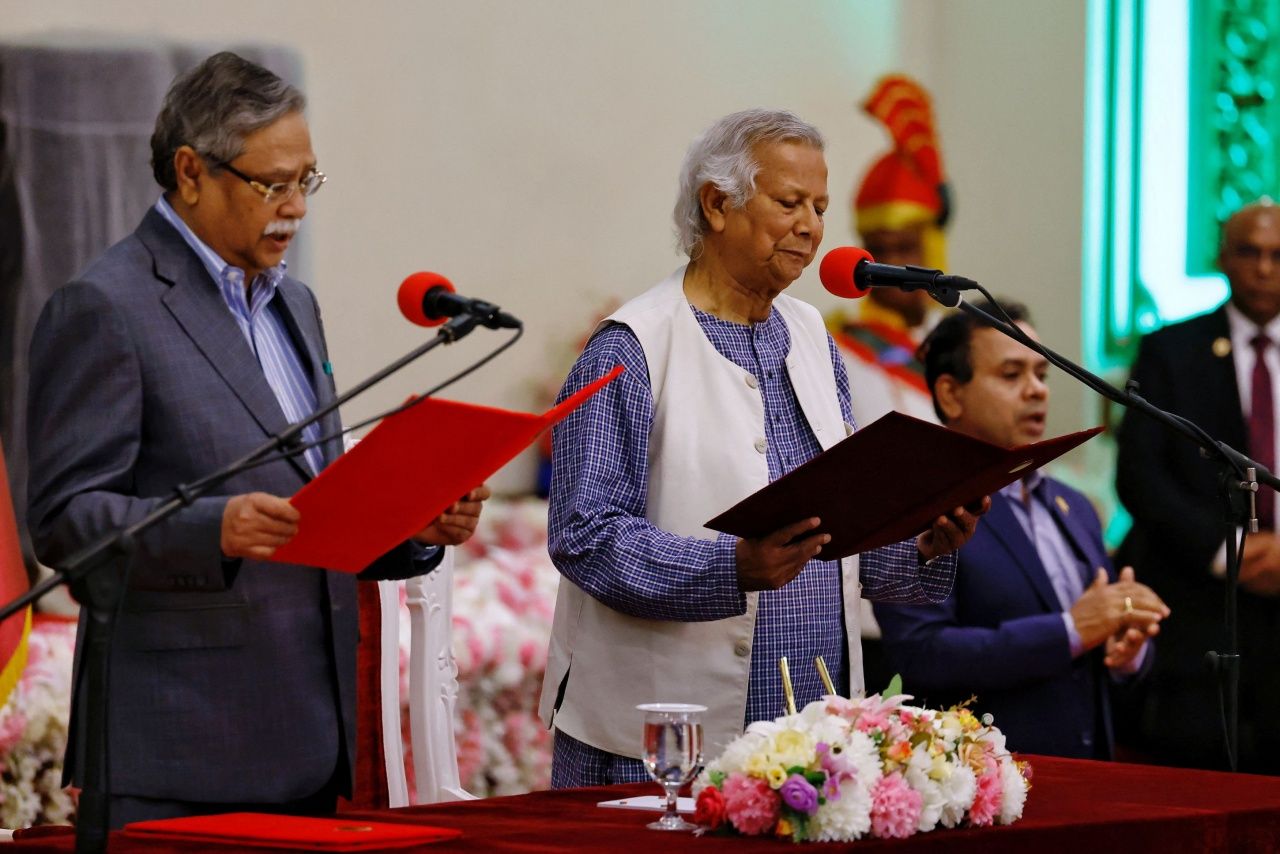Politics in Bangladesh has reached a major turning point. After the bloodiest protests in Bangladesh since the nation's founding in 1971, which ended in a people power victory. The student-led protesters as Prime Minister Sheikh Hasina boarded a helicopter and fled to India, the end of the prime minister's 15-year tenure
The students leading the protests demanded Muhammad Younis The 84-year-old economics professor, who won the Nobel Peace Prize in 2006, has been serving as the interim prime minister of Bangladesh. While attending a meeting with military leaders and President Mohammad Sahabuddin Bangladesh to choose the acting prime minister, student leaders strongly objected. We absolutely do not accept the military taking over the caretaker government. President Sabahuddin dissolved the parliament on August 6, 2024.

*Biography of Muhammad Yunus: “Banker to the Poor”
Bangladeshi students' decisions in application Professor Muhammad Yunus He came to take over as the leader of the caretaker government in Bangladesh. It is believed that he creates hope for the people of Bangladesh who want to see change in the country. There is real democracy. The end of authoritarian politics monopolized by the same political power groups and especially a government that takes into consideration the poor people of the country. Who are suffering from severe economic problems.
Muhammad Younis Born in Chittagong, Bengal on 28 June 1940. He is currently 84 years old. He graduated with a Bachelor's degree from the Faculty of Economics. He joined the University of Dhaka in 1960 and graduated with a Master's degree in 1961 before being awarded a Fulbright Scholarship. He went on to pursue a Ph.D. in Economics at Vanderbilt University, USA in 1969.
Then in 1972, a year after Bangladesh gained independence from Pakistan, Yunus returned to work as a professor at Chittagong University in Bangladesh, where he witnessed the famine. The severe food shortages among the 1.5 million people in Bangladesh who had been ravaged by the 1974 disaster made Yunus want to help the poor.
“I find it difficult to teach fancy theories. Economics in college classrooms and the background is the extreme hunger in Bangladesh. I felt the emptiness of these economic theories in the face of hunger and poverty.” Yunus gave a speech and said after receiving the Nobel Peace Prize in 2006 that he immediately wanted to do something to help those around him who were suffering from poverty.
Then Yunus took the initiative and developed the idea. “Microcredit” or lending money without using collateral. He started by giving small loans to the poorest people in the communities in which they live and founded Grameen Bank in 1983, so that Yunus later earned the title of “”Banker for the poor”

Finally, Yunus and Grameen Bank jointly awarded the Nobel Peace Prize in 2006, and Yunus has also received many prestigious international awards. So that he has become famous all over the world.
The main rival of former Prime Minister Sheikh Hasina.
Professor Yunus and Hasina became the target of intense anger. After he came up with the idea of pushing for a political party in 2007 because he saw the failure of the two main political parties in the country. It is the entire government party. The Awami League led by Sheikh Hasina and the opposition parties, the Bangladesh Nationalist Party
Hasina considers Professor Yunus a thorn in her political side, leading to his dismissal as director of Grameen Bank in 2011. He was accused of “sucking the blood” of the poor. Grameen Bank charged exorbitant interest rates.

Hasina’s government has launched an investigation into the finances of Grameen Bank. It is a non-profit organization, and in January 2024, a Bangladeshi court sentenced Professor Yunus to six months in prison for violating labor laws. It was based on allegations of failing to set up an employee welfare fund, but Professor Yunus has denied the charges. Supporters of Professor Yunus say the case is politically motivated.
Furthermore, Professor Yunus has denied accusations that Grameen Bank extorted money from the poor. He told CNN in early 2024 that Grameen Bank never intended to make money. But wanted to help the poor and encourage small entrepreneurs.

Acceptance of the position of the Prime Minister of the caretaker government of Bangladesh
Till the end when there was a big protest in Bangladesh led by students who initially came out against the protest, they won and Prof. Yunus accepted the post of caretaker prime minister. He had travelled from France. He returned to Dhaka on 8 August 2024.
Professor Yunus said a few days ago that he wants to see the military relinquish control of the country to a civilian government. Besides criticizing Ms Hasina, she has tortured us for so long and is making this country unlivable for people.
“People are celebrating in the streets. Millions of people across Bangladesh are celebrating. It feels like it’s Independence Day,” said Prof Yunus, praising the protests in Bangladesh. However, many experts are critical of Bangladesh’s future and the task that Prof Yunus will face as the interim head of government. It is a long and complicated road. The government must make reforms.
Mubashir Hasan, who studies authoritarianism in Asia and at the University of Oslo in Norway, says Professor Yunus’s first challenge is to restore law and order in Bangladesh, after weeks of bloody protests that have left nearly 300 people dead, most of them students.
Before a crowd of protesters stormed Prime Minister Hasina's residence and angrily took out their belongings from the house. This is a scene unprecedented in Bangladesh. At the same time, people still lack confidence and trust in the police. The judicial system and various state institutions have gone.
Author: Aranya Srishanthanit
